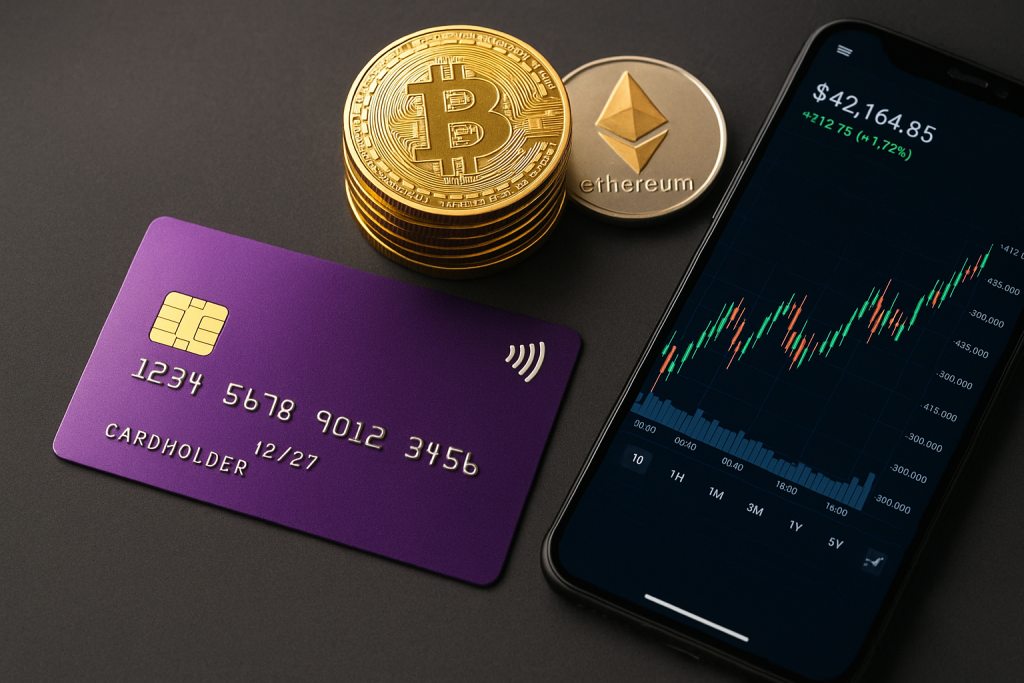Crypto credit cards are shaking up the financial landscape, offering both crypto enthusiasts and everyday users a new way to engage with digital currencies. These cards allow individuals to spend cryptocurrencies directly or earn rewards in crypto, bridging the gap between traditional financial systems and digital assets. Given their unique position at this intersection, it’s crucial to explore whether crypto credit cards are worth adopting in your financial toolkit.
While the appeal of crypto credit cards is undeniable, their suitability depends on understanding their benefits, risks, and operational nuances. Some see them as a seamless way to integrate cryptocurrencies into daily life, while others caution about potential volatility and security concerns. This article delves into what makes crypto credit cards tick, alongside the perks and pitfalls they present, to empower informed decision-making.
Understanding crypto credit cards

Crypto credit cards operate similarly to traditional credit cards but are tied to digital currencies. In essence, they allow you to make purchases using crypto or earn crypto rewards. As the adoption of cryptocurrencies increases, these cards are becoming more popular among users who wish to spend their digital assets effortlessly.
The integration process usually involves linking a crypto wallet to the card, converting cryptocurrencies to fiat currencies at the point of sale. This seamless conversion provides convenience, making daily transactions with crypto as easy as using any other credit card. Yet, users must understand potential fluctuations in value and transaction fees associated with such conversions.
How crypto credit cards work
Crypto credit cards typically require users to deposit cryptocurrencies into a linked account. When a purchase is made, the card provider converts the necessary amount of crypto into fiat currency for the transaction. This process is done automatically, ensuring smooth transactions.
Moreover, some cards offer the option to earn rewards in the form of cryptocurrencies like Bitcoin or Ethereum, incentivizing usage. However, it’s important to understand the fee structure and exchange rates involved, as these can vary significantly between different card providers.
Types of crypto credit cards
There are several types of crypto credit cards, each offering unique benefits and features. Some cards are prepaid, requiring users to load them with crypto in advance, which then gets converted at the time of purchase. Others operate more traditionally, offering credit lines denominated in fiat currency.
Additionally, there are cards that exclusively reward users with crypto, providing a modern twist on traditional cash back. Identifying the right type of card for your needs depends on your financial habits and how frequently you engage with cryptocurrencies in everyday transactions.
The benefits and allure of crypto credit cards
One of the primary advantages of crypto credit cards is the ability to seamlessly blend digital currencies with real-world spending. For crypto enthusiasts, this means using their digital holdings to make purchases without needing to convert them first, simplifying the user experience significantly.
Beyond convenience, many crypto credit cards offer lucrative reward programs. Some offer rewards in the form of various cryptocurrencies, enhancing the appeal to those looking to diversify their digital asset portfolio. Additionally, they allow users to capitalize on cryptocurrencies’ growth potential while enjoying the functionality of a credit card.
Global acceptance and versatility
Crypto credit cards are increasingly accepted globally, with leading card networks such as Visa and Mastercard supporting them. This broad acceptance means that users can spend their cryptocurrency at millions of locations worldwide, just like they would with a standard credit card.
The versatility of these cards extends to making online purchases and withdrawing cash from ATMs. However, understanding the terms of use, such as withdrawal limits and applicable fees for card usage internationally, is essential for leveraging their full potential.
Reward structures and incentives
The reward structures of crypto credit cards can be particularly attractive, offering cash back, points, or direct cryptocurrency deposits. This can be enticing for users looking to earn digital assets passively. Some cards even provide increased rewards for specific spending categories like travel or dining, further enhancing their value proposition.
Nevertheless, while rewards are appealing, it is crucial to evaluate the fine print regarding redemption options and any accompanying terms. Understanding these details will help maximize the benefits and align them with personal financial goals.
Risks and considerations
While the benefits of crypto credit cards are tempting, they come with inherent risks. One of the primary concerns is the volatility of cryptocurrencies. Rapid fluctuations in value can impact the worth of crypto rewards and the conversion rate at the point of sale, potentially affecting the economic outcome of using such cards.
Furthermore, the security of your crypto holdings is paramount. Users must ensure the card provider has robust security measures in place to protect their funds and personal information. Evaluating these factors can help mitigate risks and ensure a safer experience when adopting a crypto credit card.
Fees and hidden costs
Fees associated with crypto credit cards can sometimes offset the perceived benefits. Common fees include transaction and conversion fees, as well as maintenance charges. These costs can add up over time, impacting the overall value proposition of the card.
Aside from transparent fees, users should be wary of any hidden costs or onerous terms, which can detract from the convenience of using such cards. Thorough research and comparison of different providers can aid in selecting a card that aligns with financial expectations.





